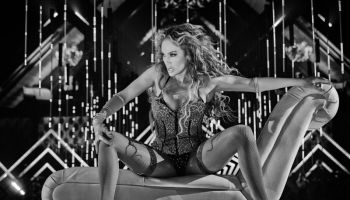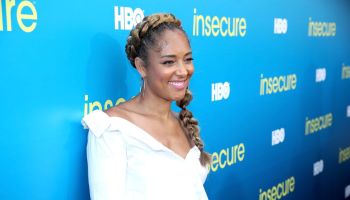ABC announced that it would renew Shonda Rhimes’ Scandal after initially ordering only seven episodes of the series. Last week, the series’ season finale finished number one in its slot for the 6th consecutive week among women ages 18-49, proving that the project, written by and starring a Black woman, has found an audience.
Perhaps the success of Scandal will instill more confidence among network executives in projects featuring atypical portrayals of African-American women. The ABC series was the first network TV drama with a Black female lead in 38 years. Cable television has a kinder history thanks to short-lived series like Hawthorne and No. 1 Ladies Detective Agency.
Scandal stands in contrast to its predecessor. The 1974 series Get Christie Love! was a Blaxploitation crime series best known for the catchphrase “You’re under arrest, sugar.” However, ethnicity is not the focus ofScandal’s lead character Olivia Pope’s story. In fact, the show never mentions it.
2012 was shaping up to be a year of more of the same televised images of Black women. The most hotly debated topics surrounding the issue dealt with the well-worn storylines of Black women being used to reinforce stereotypes or ignored altogether.
HBO premiered a series with the all encompassing title Girls as a show poised to be the voice of a generation. Critics were taken aback when the show, set in Brooklyn, New York, did not feature any non-white characters.Girls’ creator Lena Dunham responded thoughtfully to the criticism, telling NPR:
I am a half-Jew, half-WASP, and I wrote two Jews and two WASPs. Something I wanted to avoid was tokenism in casting. If I had one of the four girls, if, for example, she was African-American, I feel like — not that the experience of an African-American girl and a white girl are drastically different, but there has to be specificity to that experience [that] I wasn’t able to speak to.
Had Black women become so desperate for representation on television that they would demand a woman who knows nothing about the Black experience to represent it?
It is not surprising considering the images available at the time. Vh1 ignored Shaunie O’Neal’s repeated expression of disappointment in the direction the network had taken her project Basketball Wives. They seemed resolute in upping the ante, determined to see how low they could go with negative images of Black women. It wasn’t until a recent onslaught of criticism, complete with a Star Jones-endorsed petition calling for a boycott of the show and advertisers like Summer’s Eve pulling their endorsement, that the network and production company agreed to a “no excessive physical confrontations” policy on the series moving forward.
Despite Basketball Wives nearing ridiculous levels of juvenile, stereotypical behavior, the show probably would not have received as much backlash if Black women had a more diverse catalog of images presented on television. There is no longer a shortage of Black characters. The deficiency lies in quality and diversity. If Black women aren’t playing into aggressive stereotypes on reality television, they’re regulated to the best friend or sidekick role on ensemble sitcoms.
Scandal offers a breath of fresh air. The show’s success demonstrates that a Black woman can be accepted playing a universal role, and a show with a Black lead doesn’t have to be about being Black. Hopefully, this time the entertainment industry’s strategy of recycling successful projects will work in favor of the positive portrayal of Black women. Maybe in coming seasons we will see shows that satisfy our craving for junk television alongside ones that offer sophisticated, graceful roles. That’s all Black women have ever asked for in the first place.
via MadameNoire
Five Reasons Why We Love Olivia Pope (Of ABC’s “Scandal”)














